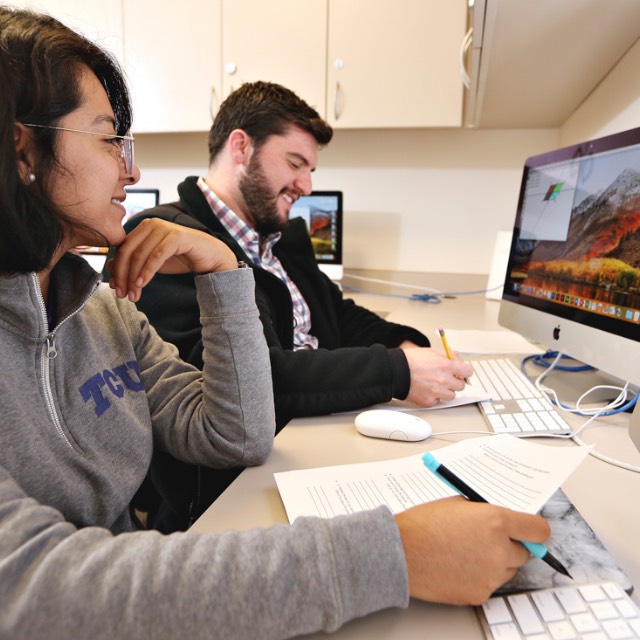Curriculum and Instruction
Improve your instruction skills and prepare for leadership.

Enhance and support learning in K-12 schools and other educational settings. You’ll learn knowledge related to content and knowledge that helps you contribute to scholarship. Choose a content specialization: curriculum studies, language and literacy, mathematics education or science education, and choose between a research emphasis or a teaching and learning emphasis.
Contact
- Lori Kimball
Graduate Coordinator - 817-257-7661
Apply
Programs Offered
Sample Courses
- Technology for Diverse Learners
- Psychology of Thinking and Learning
- Historical and Philosophical Foundations of Education
View Courses & Degree Requirements
Special Admission Requirements
There are no special admissions requirements for this program.
Our Faculty
The College of Education is home to two Piper Professors, a National Science Foundation Research Fellow and three endowed chairs and professors. Our faculty is nationally known for their research and maintains a tradition of excellence in teaching and mentoring.
What Sets Us Apart
Practical Experience — As a graduate student at TCU, you’ll find yourself immersed in a community of teaching, learning, research and practice. You’ll work side-by-side with faculty members on research projects, engage in field experiences and acquire the skills to advance your career in education.
Teacher-Scholars — TCU’s teacher-scholar model means professors are both teachers and researchers — often with involvement of both undergraduate and graduate students. When your teachers are involved scholars themselves, everyone benefits.
Interdisciplinary Focus — At TCU, there’s a shared willingness by faculty to collaborate across disciplines in teaching and research. Our goal is for students to build on their new knowledge, making valuable connections between concepts and ideas from different areas of study. This motivates our students to be more creative in their lifelong learning and enhances the critical thinking skills needed for problem solving in today’s world.
Career Prospects
Program graduates are prepared to work with children, adolescents and families in a variety of educational settings, including schools, higher education institutions, companies and government agencies. U.S. News and World Report cites the need for high-quality curriculum development in mathematics and science as the demand for STEM jobs grows.